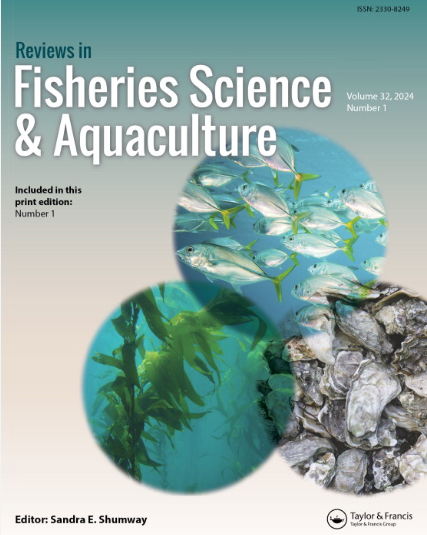Identifying Opportunities for Aligning Production and Consumption in the U.S. Fisheries by Considering Seasonality
IF 5.3
1区 农林科学
Q1 FISHERIES
引用次数: 5
Abstract
Abstract Seasonality is a natural feature of wild caught fisheries that introduces variation in food supply, and which often is amplified by fisheries management systems. Seasonal timing of landings patterns and linkages to consumption patterns can have a potentially strong impact on income for coastal communities as well as import patterns. This study characterizes the relationship between seasonality in seafood production and consumption in the United States by analyzing monthly domestic fisheries landings and imports and retail sales of farmed and wild seafood from 2017 to 2019. Analyses were conducted for total seafood sales, by product form, by species group, and by region of the United States. The data reveal strong seasonal increases in consumption around December and March. Seasonal increases in consumption in Spring and Summer occurred in parallel with domestic fishing production. Domestic landings vary by region, but most regions have peak fishing seasons between May and October. Alaska has the largest commercial fishery in the United States and seasonal peaks in Alaska (July/August, February/March) strongly influence seasonality in national landings. Misalignment between domestic production and consumption in some seasons and species groups creates opportunities for imports to supplement demand and lost opportunities for domestic producers.通过考虑季节性确定美国渔业生产和消费协调的机会
季节性是野生捕捞渔业的一种自然特征,它带来了食物供应的变化,而且往往被渔业管理系统放大。登陆模式的季节性时间和与消费模式的联系可能对沿海社区的收入以及进口模式产生潜在的强烈影响。本研究通过分析2017年至2019年美国每月的国内渔业捕捞量、养殖和野生海产品的进口和零售额,描述了美国海产品生产和消费的季节性关系。分析进行了海鲜销售总额,按产品形式,按物种组,并按美国地区。数据显示,12月和3月前后的消费出现了强劲的季节性增长。春季和夏季消费量的季节性增长与国内捕捞产量同步发生。国内登陆因地区而异,但大多数地区的捕鱼旺季在5月至10月之间。阿拉斯加拥有美国最大的商业渔业,阿拉斯加的季节性高峰(7月/ 8月、2月/ 3月)强烈影响着全国登陆的季节性。某些季节和物种群的国内生产与消费之间的不协调为进口补充需求创造了机会,并使国内生产者失去了机会。
本文章由计算机程序翻译,如有差异,请以英文原文为准。
求助全文
约1分钟内获得全文
求助全文
来源期刊

Reviews in Fisheries Science & Aquaculture
FISHERIES-
CiteScore
25.20
自引率
0.90%
发文量
19
期刊介绍:
Reviews in Fisheries Science & Aquaculture provides an important forum for the publication of up-to-date reviews covering a broad range of subject areas including management, aquaculture, taxonomy, behavior, stock identification, genetics, nutrition, and physiology. Issues concerning finfish and aquatic invertebrates prized for their economic or recreational importance, their value as indicators of environmental health, or their natural beauty are addressed. An important resource that keeps you apprised of the latest changes in the field, each issue of Reviews in Fisheries Science & Aquaculture presents useful information to fisheries and aquaculture scientists in academia, state and federal natural resources agencies, and the private sector.
 求助内容:
求助内容: 应助结果提醒方式:
应助结果提醒方式:


